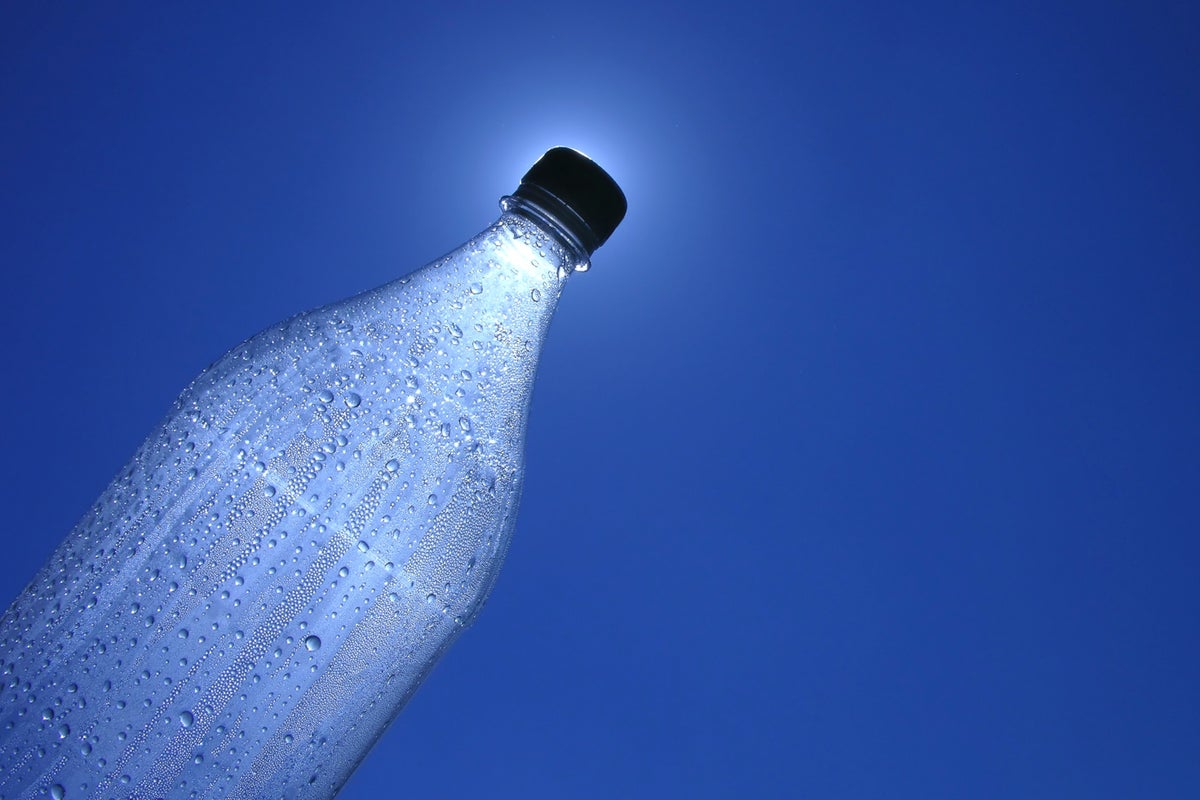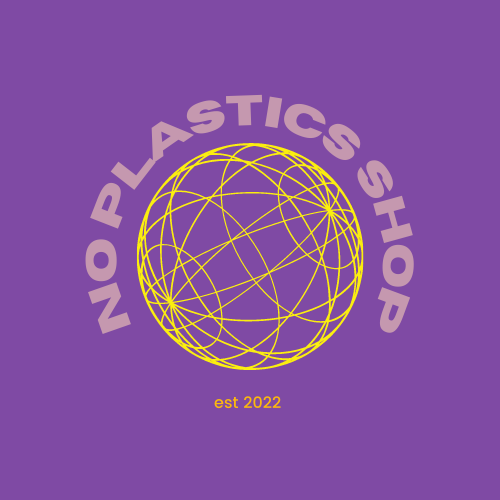The Best Zero Waste Vitamins for a Sustainable Wellness Routine

What are Zero Waste Vitamins?
Zero waste vitamins and supplements are products that aim to minimize or eliminate single-use packaging waste by employing sustainable packaging and production methods. One of the sustainable packaging methods used in zero waste vitamins is biodegradable packaging. These vitamins cater to your nutritional needs while embodying a commitment to preserving our planet’s health. Zero waste vitamins offer a tangible solution to the growing problem of waste in the wellness industry.
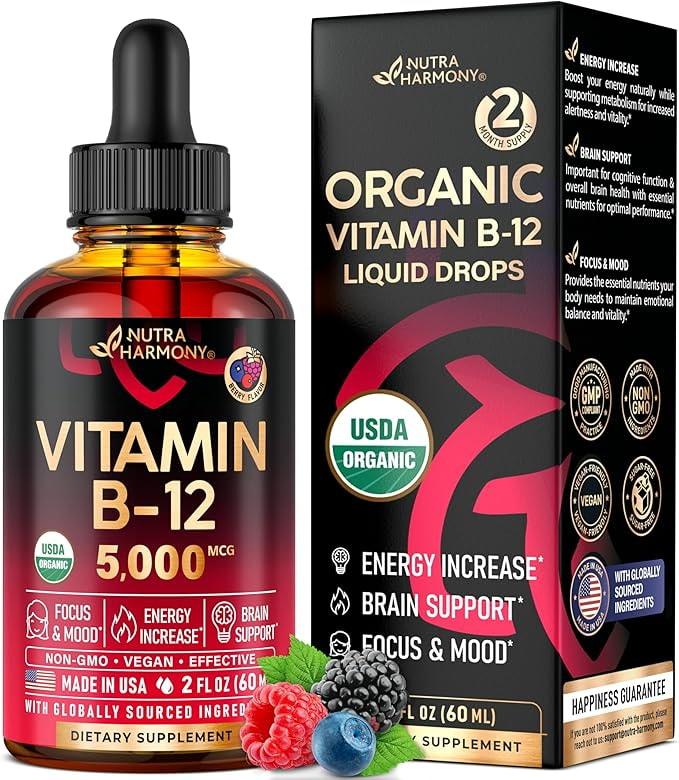
NUTRAHARMONY. glass bottle, more health targeted options at NUTRAHARMONY Store
Environmental Impact of Vitamin Production
The production of vitamins has a significant environmental impact, from the sourcing of raw materials to the packaging and distribution of the final product. Traditional vitamin production methods often rely on single-use plastics, which contribute to the staggering amount of plastic waste in landfills and oceans. Moreover, the extraction and processing of raw materials can lead to deforestation, water pollution, and soil degradation.
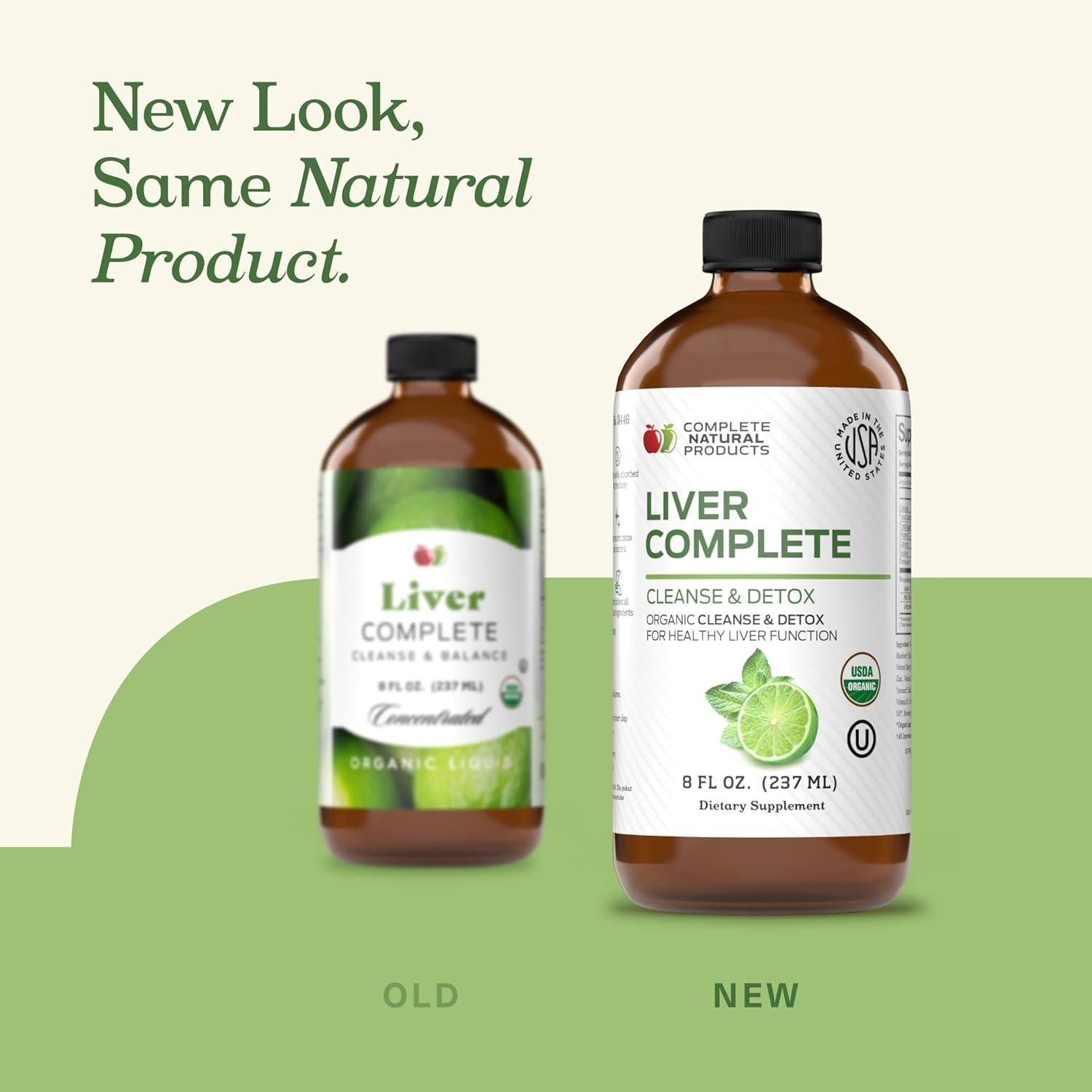
Complete Natural Products. liver support
In contrast, zero-waste vitamins and supplements prioritize sustainable practices throughout the production process. This includes using eco-friendly packaging materials, such as glass bottles, compostable packaging, and recycled materials. Additionally, many zero-waste vitamin brands opt for plant-based ingredients, which have a lower carbon footprint compared to animal-derived ingredients.
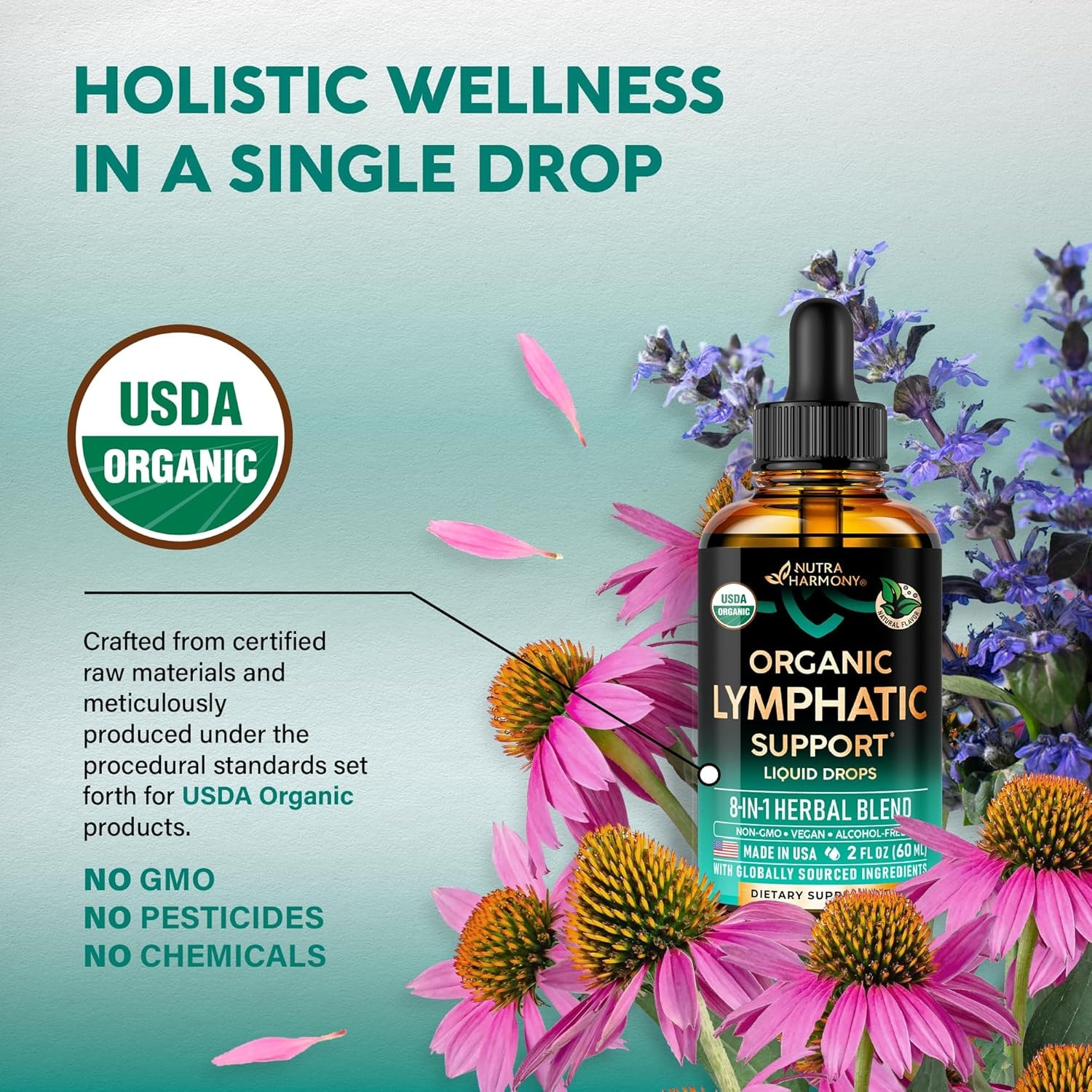
NATRAHARMONY lymphatic drainage
To mitigate the environmental impact of vitamin production, consumers can make informed choices by opting for zero-waste vitamins and supplements. By choosing products with sustainable packaging and plant-based ingredients, consumers can reduce their carbon footprint and contribute to a more environmentally friendly industry.
Plastic Supplement Bottle Impact on Plastic Waste
The environmental impact of vitamin and supplement bottles is more significant than many realize, primarily due to the plastic pollution they contribute. Billions of these bottles are produced each year, the majority made from non-biodegradable plastics.
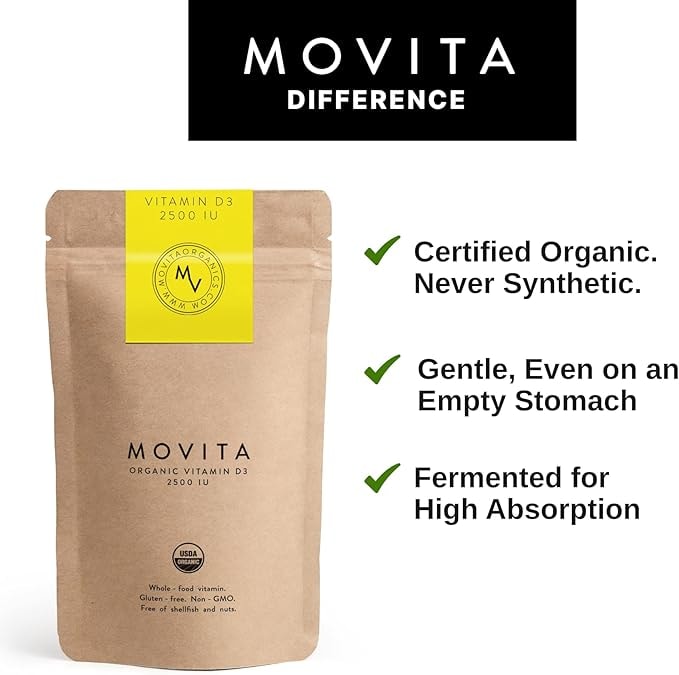
Movita Women's Multivitamins, more targeted health options at Movita Store
Once discarded, they end up in landfills or, worse, in our oceans, where they can take hundreds of years to break down into toxic microparticles; a continuous harmful leach of chemicals into the biosphere. To combat this, some companies are now using post-consumer recycled plastics in their packaging, showcasing their commitment to sustainability.
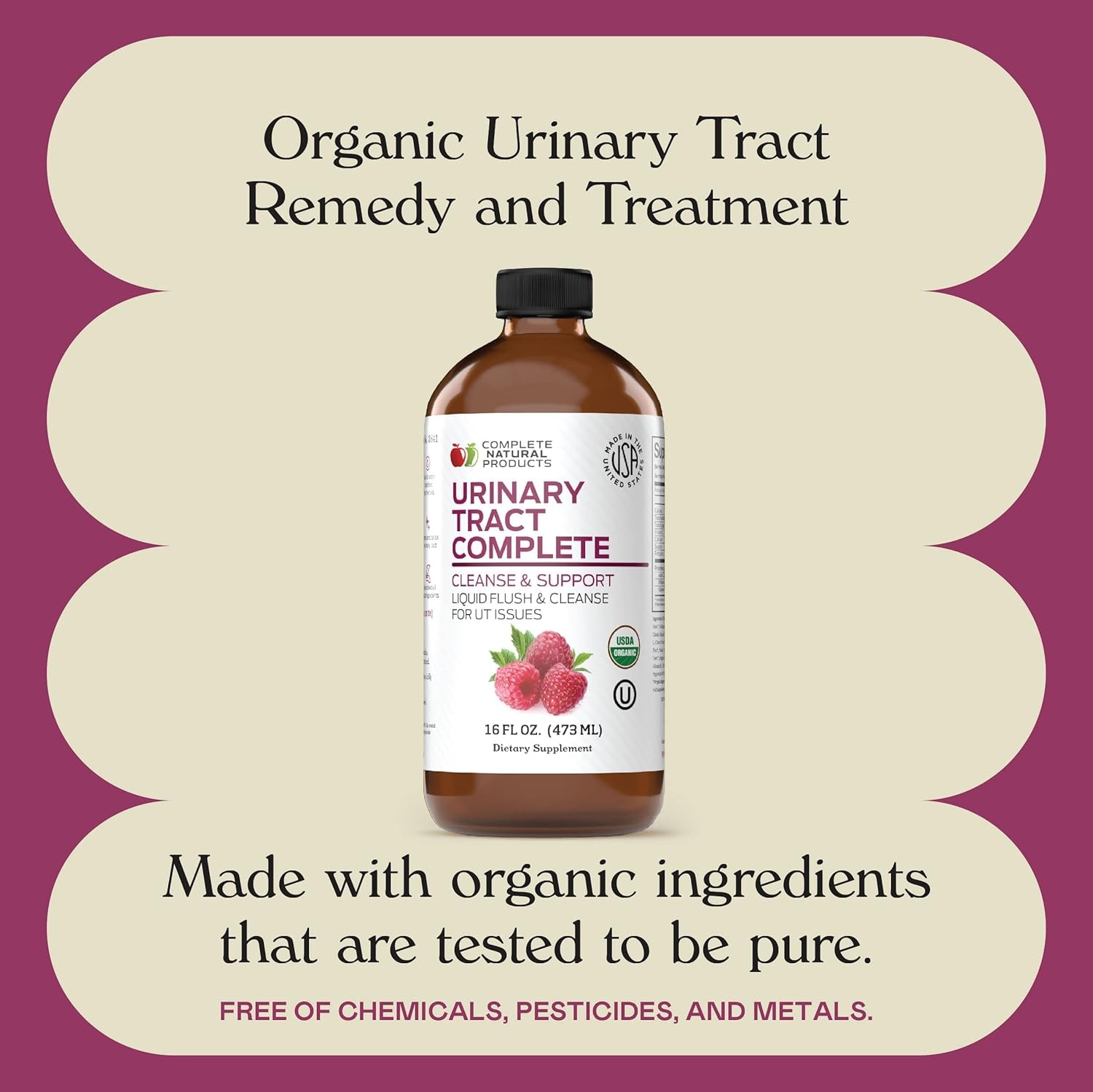
Complete Nature Products. urinary tract health, in glass, more at the Complete Nature Store
However any post consumer resulting microplastic particles that make their way into the environment are often mistaken for food by marine or terrestrial animals thereby entering our food chain. With each passing year we ingest more and more plastic in both our food and water as these micro particles accumulate.
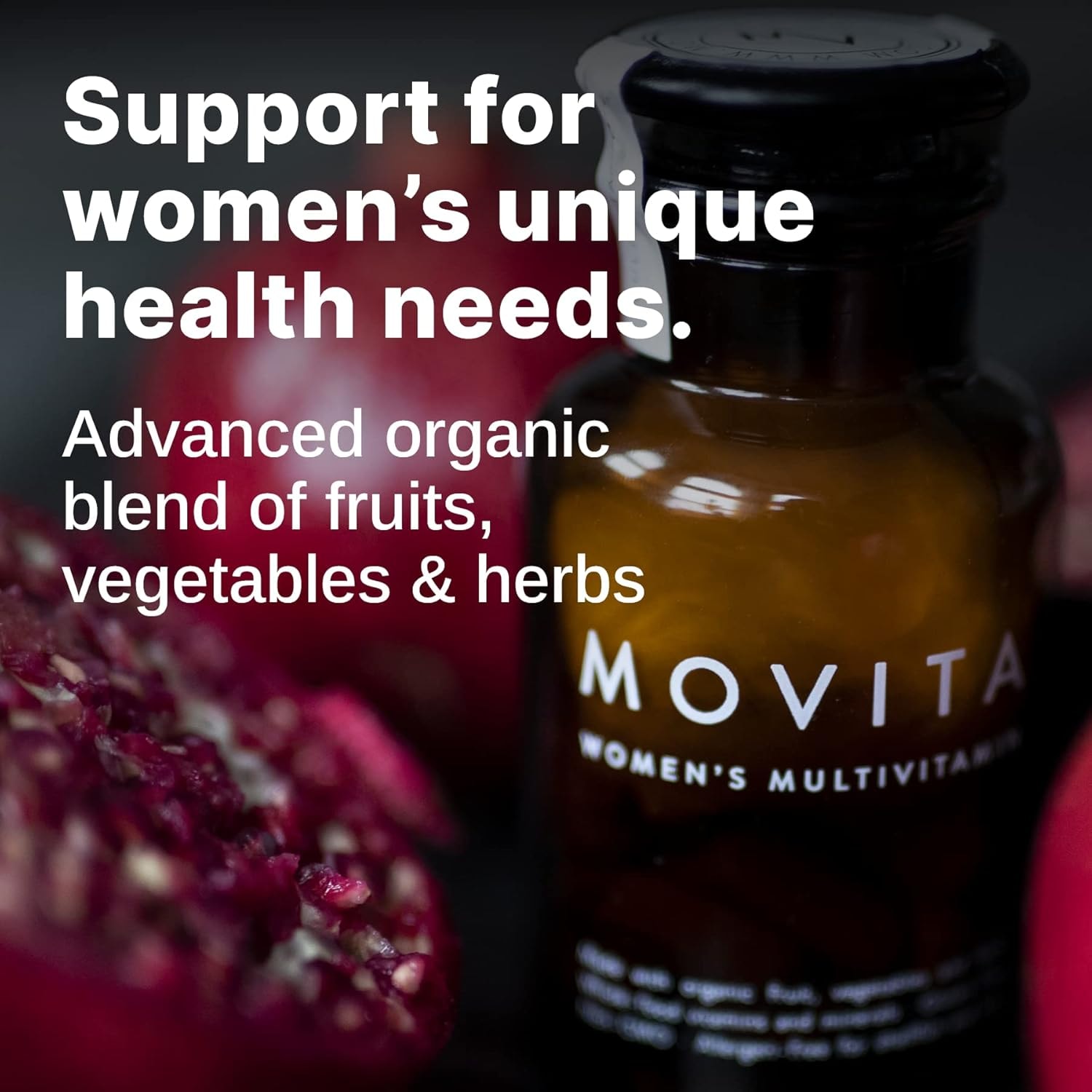
Movita Certified Organic vitamins and minerals
Glass or Paper Are Better Disposable Choices
Because the production processes of these plastic bottles also consume a significant amount of energy and resources, further adding to their environmental footprint. Using recycled materials in packaging can significantly reduce this footprint, making it easier for consumers to make environmentally conscious choices. Still, glass, paper, or biodegradable materials are better choices.
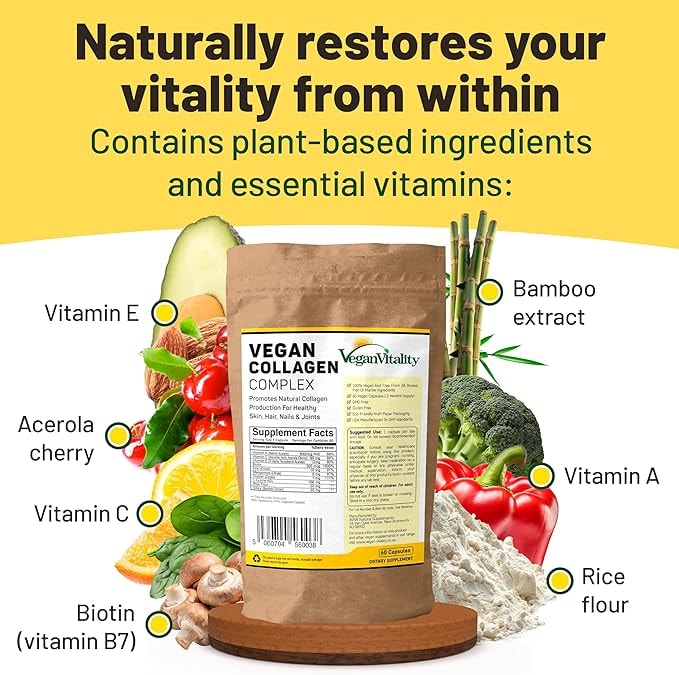
Vegan Vitality. paper packaging
To mitigate these impacts, it’s crucial for consumers and manufacturers to explore sustainable alternatives, such as biodegradable packaging or plastic free containers. However in the absence of most manufacturing assertiveness in addition to any prioritized recycling efforts, globally, particularly in America, the onus fails on we consumers to reduce the disposable microplastics poisoning our water and food supply.
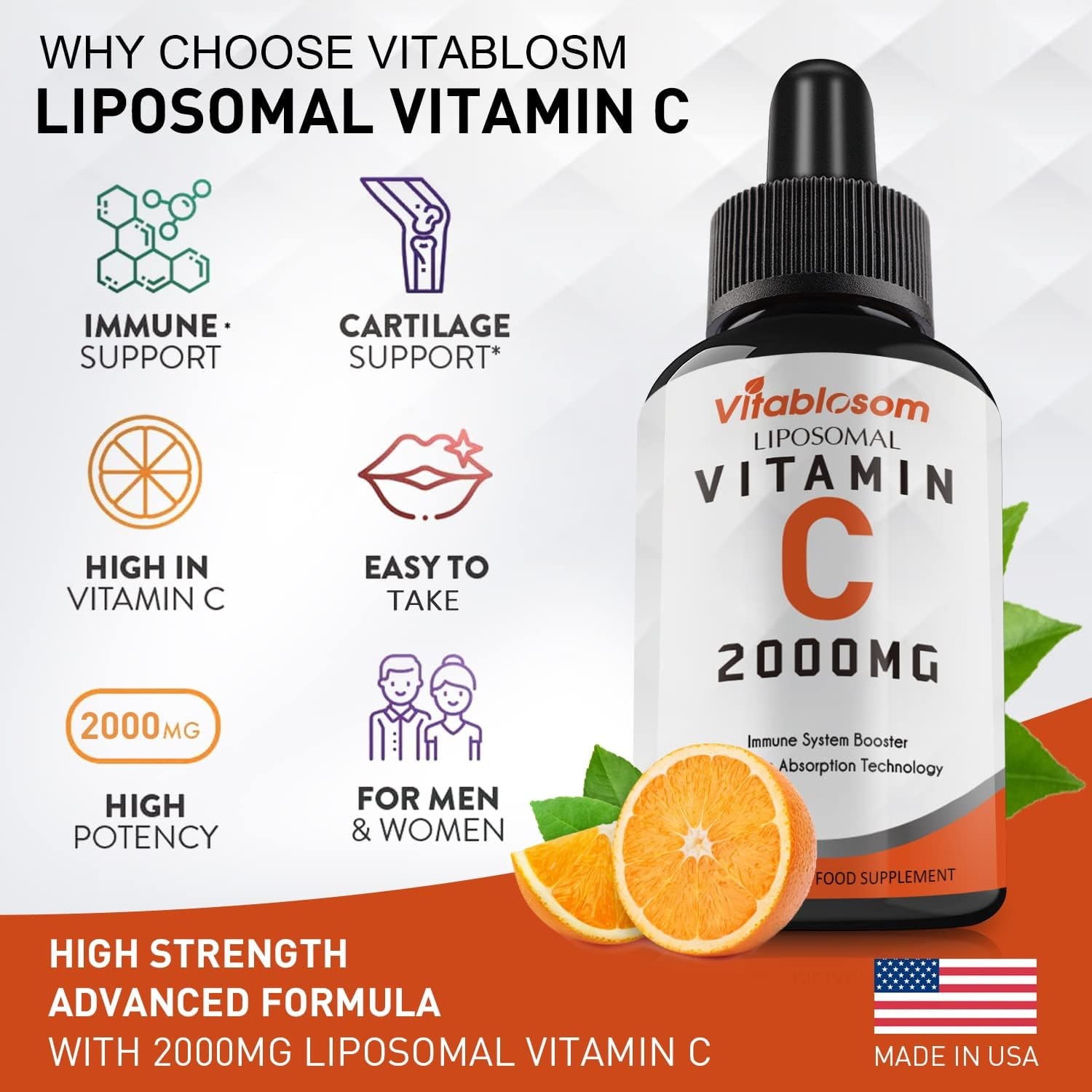
Vitablosom Store** glass bottles**
It’s entirely possible to eliminate this plastic waste strain on our planet just by making different choices, supporting brands helping us make those choices easy.
Benefits of Switching to Zero Waste Vitamins
Besides eradicating the waste they generally tend to be superior in quality. Any brand taking the time to care about reducing pollution tend to put the same care into their product. Many zero waste vitamin, supplement brands focus on sustainable sourcing to ensure that their ingredients are ethically and environmentally obtained. Ethical sourcing is a key focus of zero waste vitamin brands, ensuring that all ingredients are responsibly sourced.

Stonehenge Health Probiotics. glass bottles, compare with Vitamin Bounty Probiotics
Promoting sustainability and environmental responsibility offers a healthier alternative to traditional vitamins with eco-friendly packaging. Eco products support a circular economy that values resource conservation, aligns with a zero-waste lifestyle, reduces carbon footprint, but most importantly returns all post consumed waste back to the planet, free of toxins and microplastics.
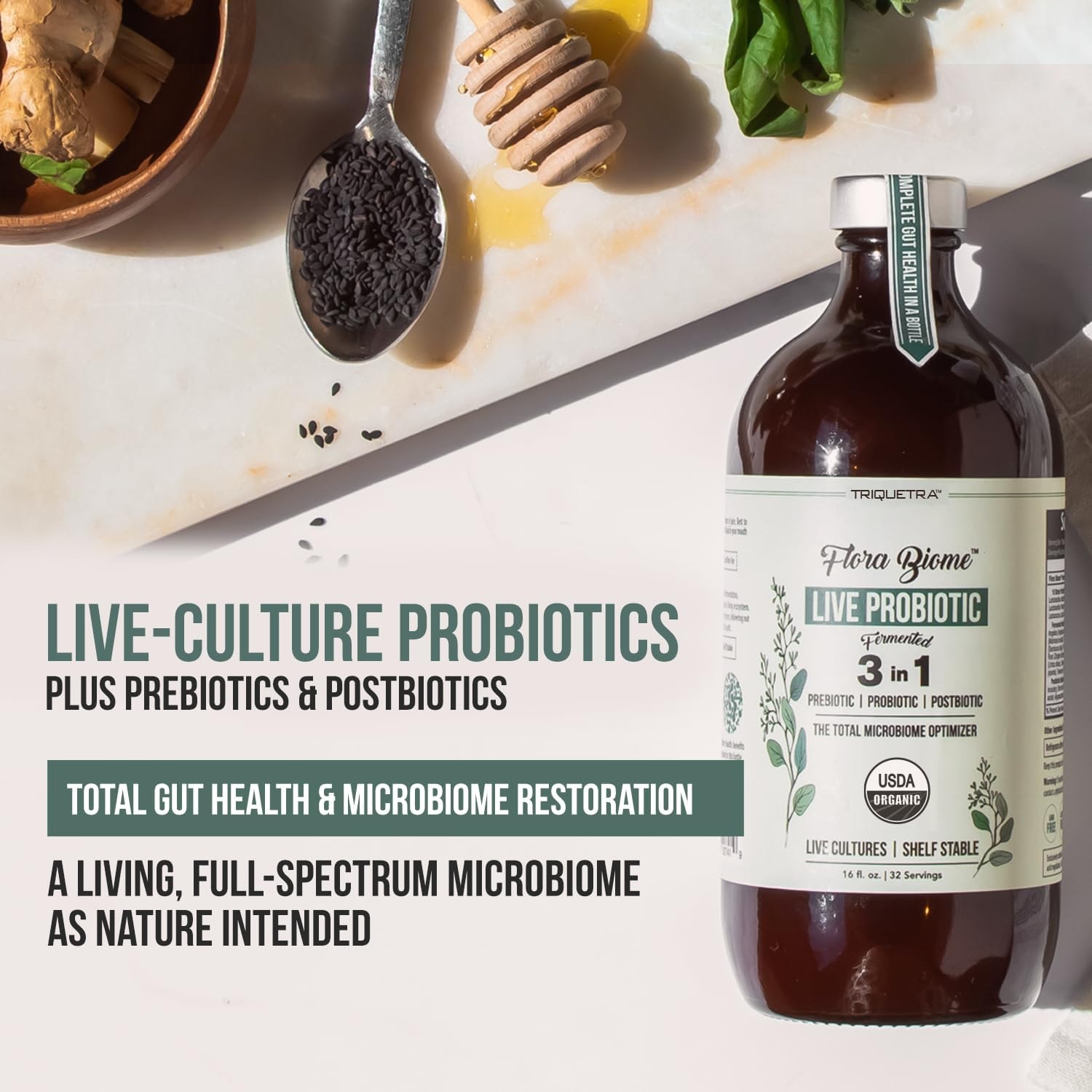
Triquetra Health Store Flora Biome Probiotics, live liquid culture
Or... read How To Make Your Own Live Probiotics
Key Considerations for Choosing Zero Waste Vitamins
Look for eco-friendly packaging, such as compostable packaging or biodegradable materials. Sustainable farming practices are a key factor in choosing zero waste vitamins. Consider the brand’s commitment to reducing waste and promoting sustainability. Opt for vitamins with refillable options and bulk purchasing to reduce packaging waste.
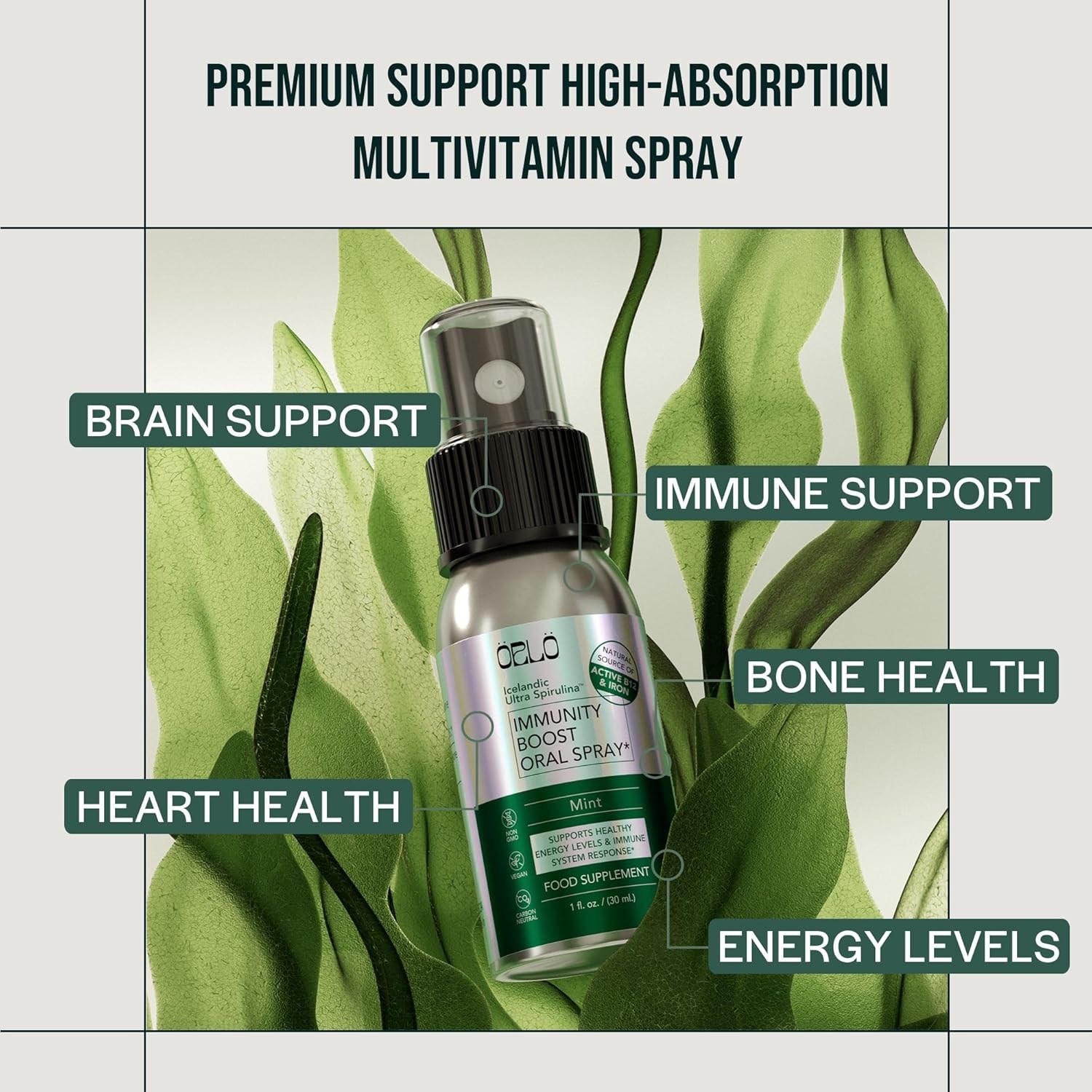
Orlo Immune Booste** metal spry bottle**
Plastic free vitamins offer significant environmental benefits by avoiding plastic containers and packaging that contribute ultimately to the microplastic problem. Choose vitamins with certifications from reputable environmental organizations. Research the brand’s sourcing and manufacturing processes to ensure they align with zero-waste principles.
Sourcing and Ingredients of Zero Waste Vitamins
When it comes to zero waste vitamins, the sourcing and ingredients play a crucial role in ensuring that the product is not only good for your health but also for the environment. Sustainable farming practices are crucial in reducing the environmental impact of ingredient sourcing. Here are some key factors to consider.
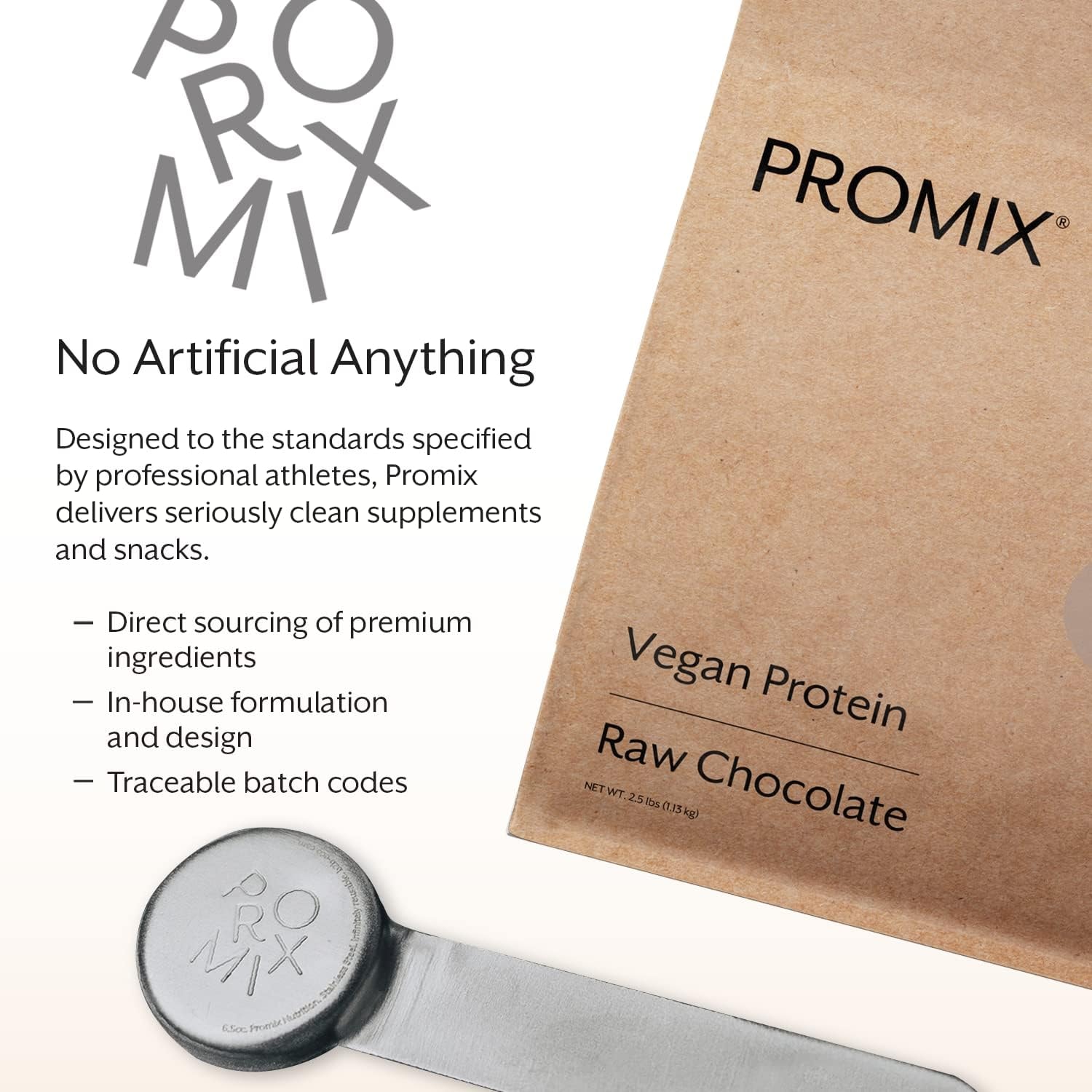
ProMix Nutrition** quality ingredients in sustainable packaging**
The foundation of any high-quality supplement lies in its ingredients. Zero waste vitamins prioritize natural, plant-based sources that are free from synthetic additives and harmful chemicals. These natural vitamins are derived from organic farming practices, which not only ensure the purity of the product but also reduce the environmental impact associated with conventional farming methods.
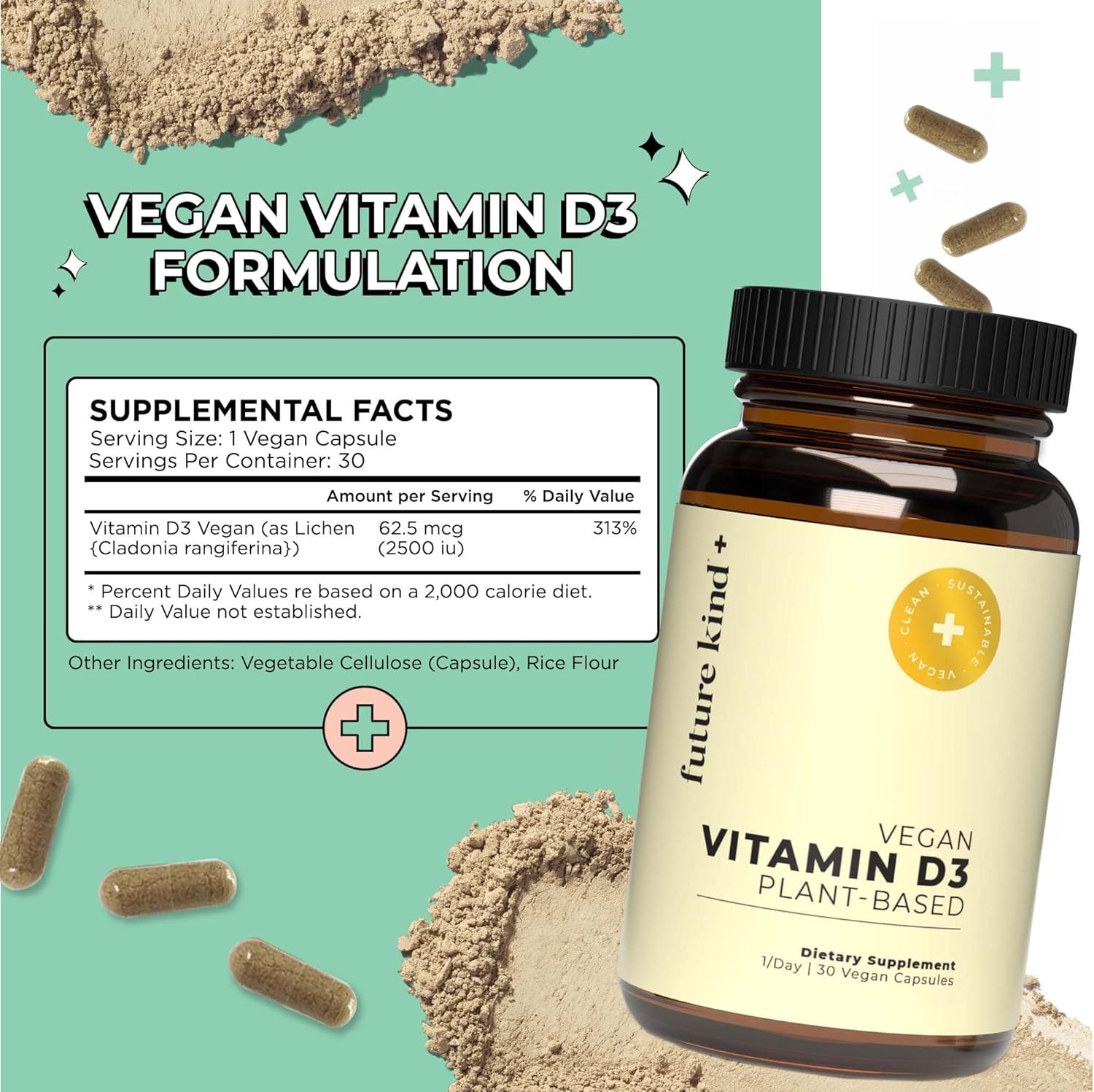
Why Glass Is Superior As Supplement Containers
When it comes to preserving the quality and potency of vitamins, glass containers are an exceptional choice. Unlike plastic, glass is non-porous and impermeable, meaning it won’t absorb or leach chemicals into your supplements. This ensures that the vitamins remain pure and uncontaminated. Glass also provides superior protection against moisture and air, which can degrade the effectiveness of vitamins over time.
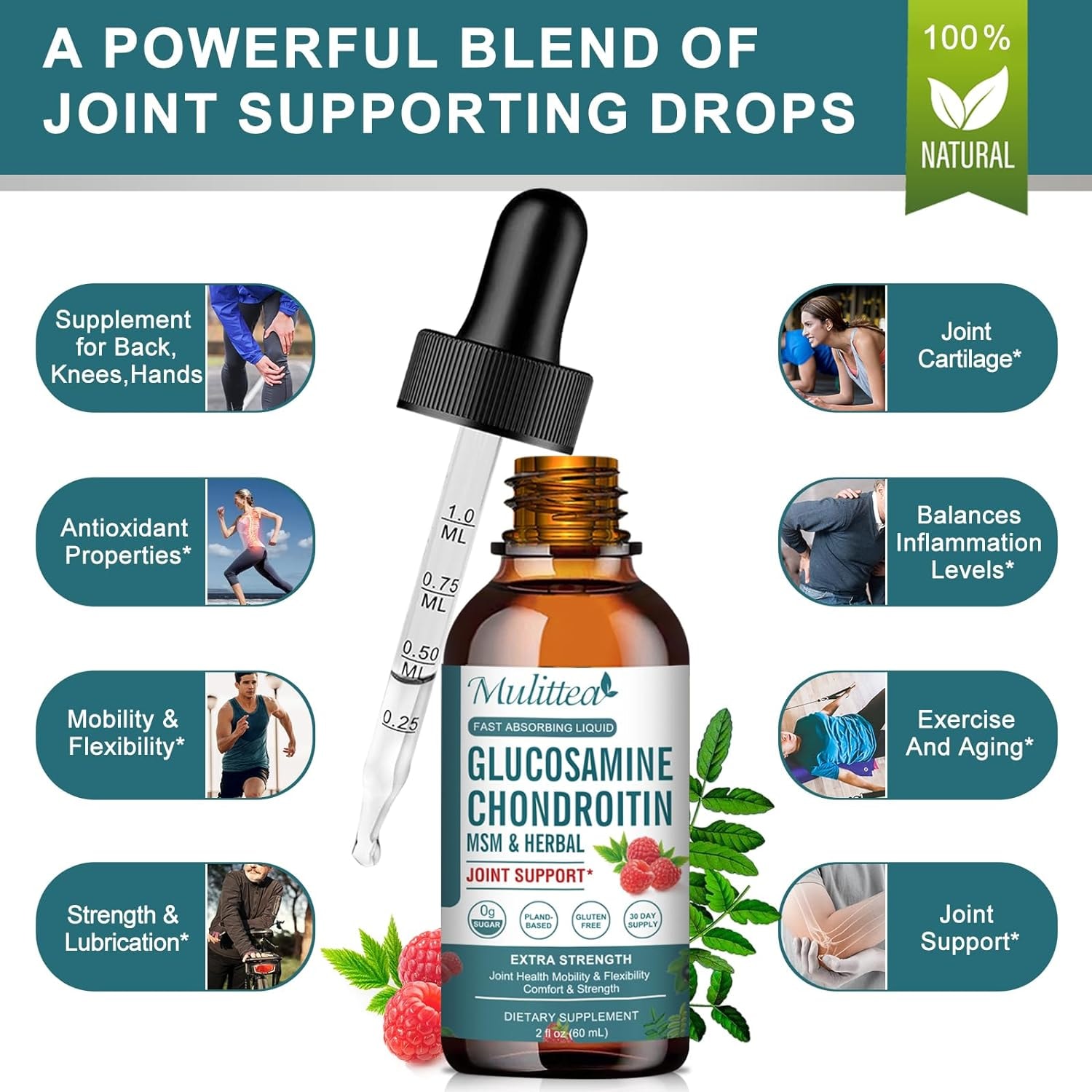
Mulittea Joint Support** glass bottles**
Furthermore, tinted or amber glass offers protection from UV rays that can break down the nutrients within. Not only does glass maintain the integrity of your vitamins, but it’s also an environmentally friendly option, being both recyclable and reusable. In short, for those serious about retaining the full benefits of their vitamins, glass containers offer unparalleled storage advantages, and using recyclable materials like glass contributes to environmental sustainability.
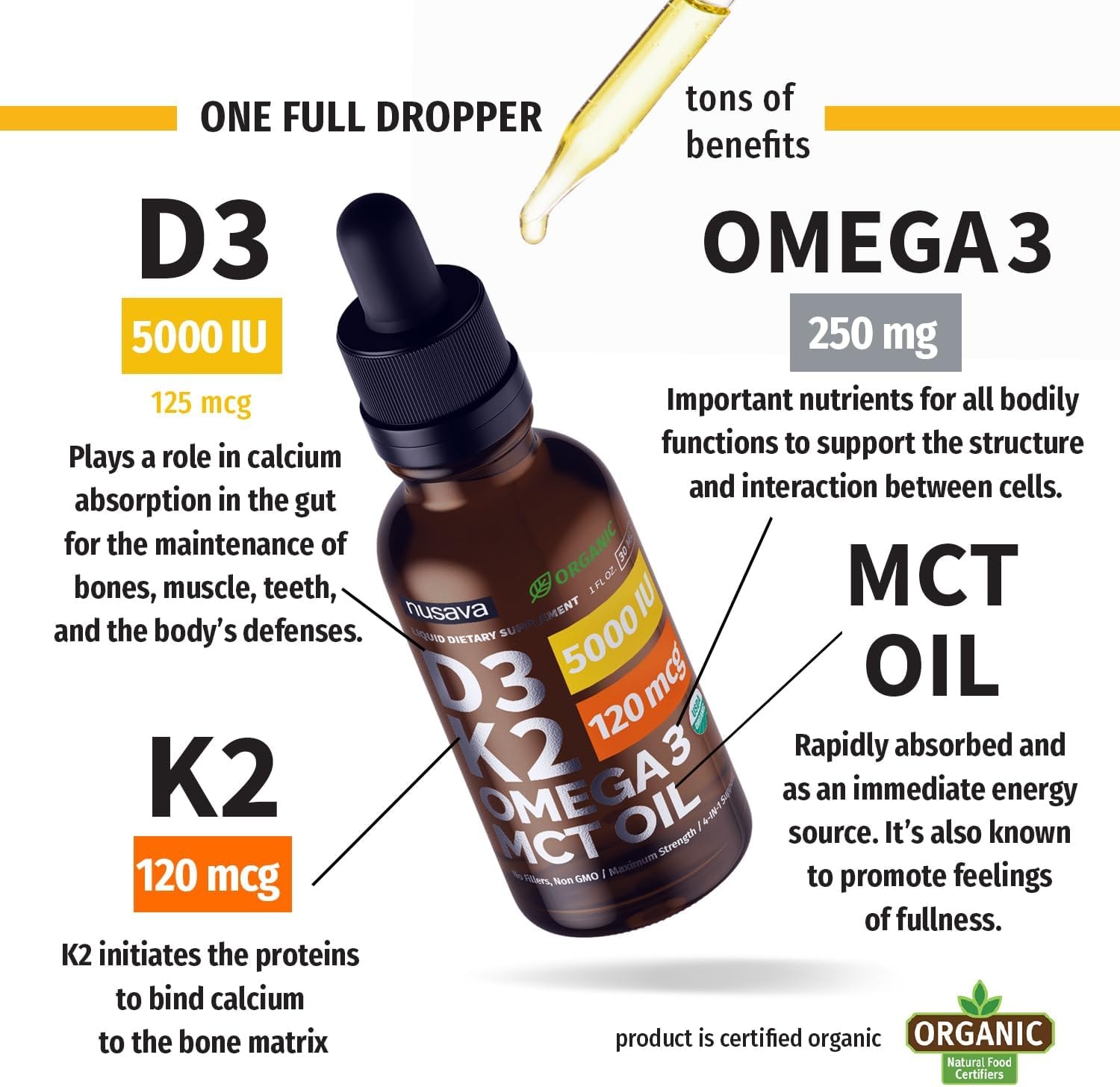
Sustainable Packaging
Sustainable practices in sourcing ingredients are paramount. Many zero waste vitamin brands commit to ethical sourcing, which includes fair trade practices and supporting local farmers. This not only ensures that the ingredients are of the highest quality but also promotes social responsibility and economic sustainability.

Vimergy. liquid energy in glass bottles, compare with Vitaboost liquid energy
Moreover, the environmental impact of ingredient sourcing is minimized by choosing suppliers who use eco-friendly methods. This includes reducing carbon footprints through sustainable farming techniques and minimizing water usage. By opting for ingredients that are sustainably sourced, zero waste vitamins contribute to the preservation of biodiversity and the health of our ecosystems.
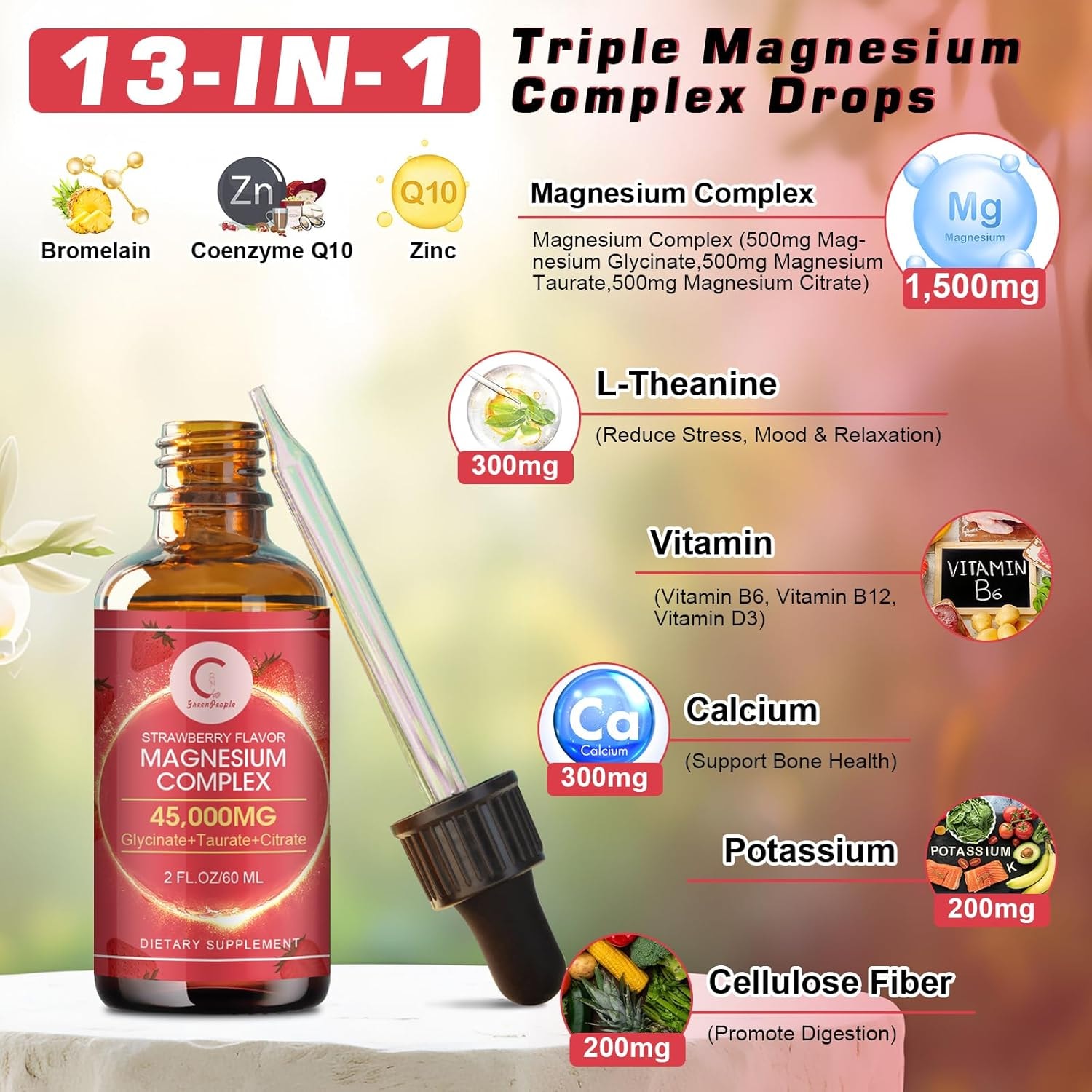
The sourcing and ingredients of zero waste vitamins are meticulously chosen to align with sustainable practices. By prioritizing natural, plant-based supplements and ethical sourcing, these vitamins offer a holistic approach to wellness that benefits both your health and the planet.
More Top Zero Waste Vitamin Brands
Seed: Offers innovative, plastic-free packaging and home compostable sachets. A brand known for their commitment to sustainable sourcing, ensuring that their ingredients are ethically and environmentally obtained.
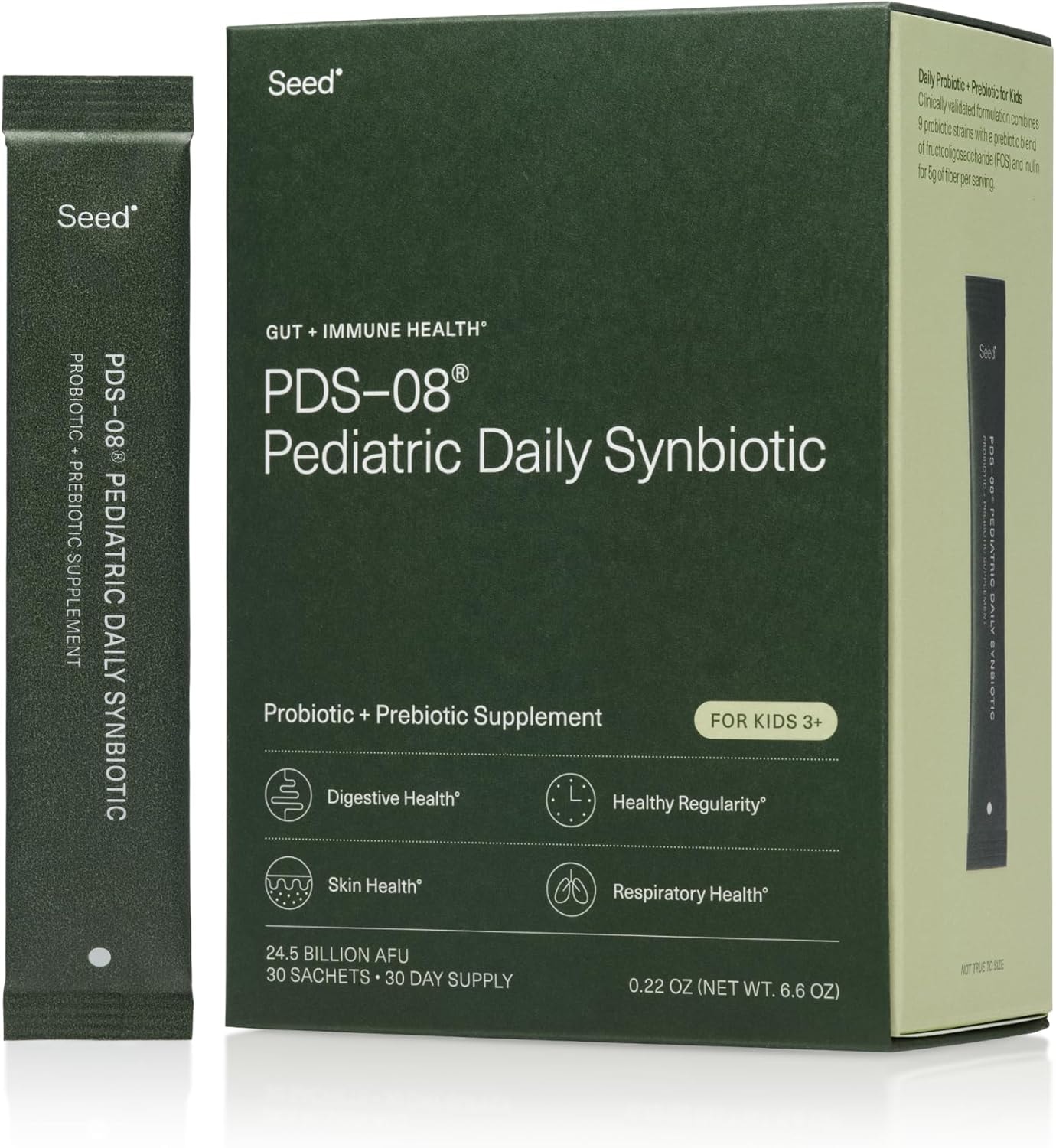
Seed Store**** pediatric formula pictured, alternative formulas at the Seed Store** (Although the Seed Store focuses much on sustainability, I inquired and much of their packaging is not entirely plastic free.)**
Orlo Nutrition: Uses a technology-based aquaculture system to grow microalgae for omega-3 supplements and packs products in light-blocking refillable glass containers
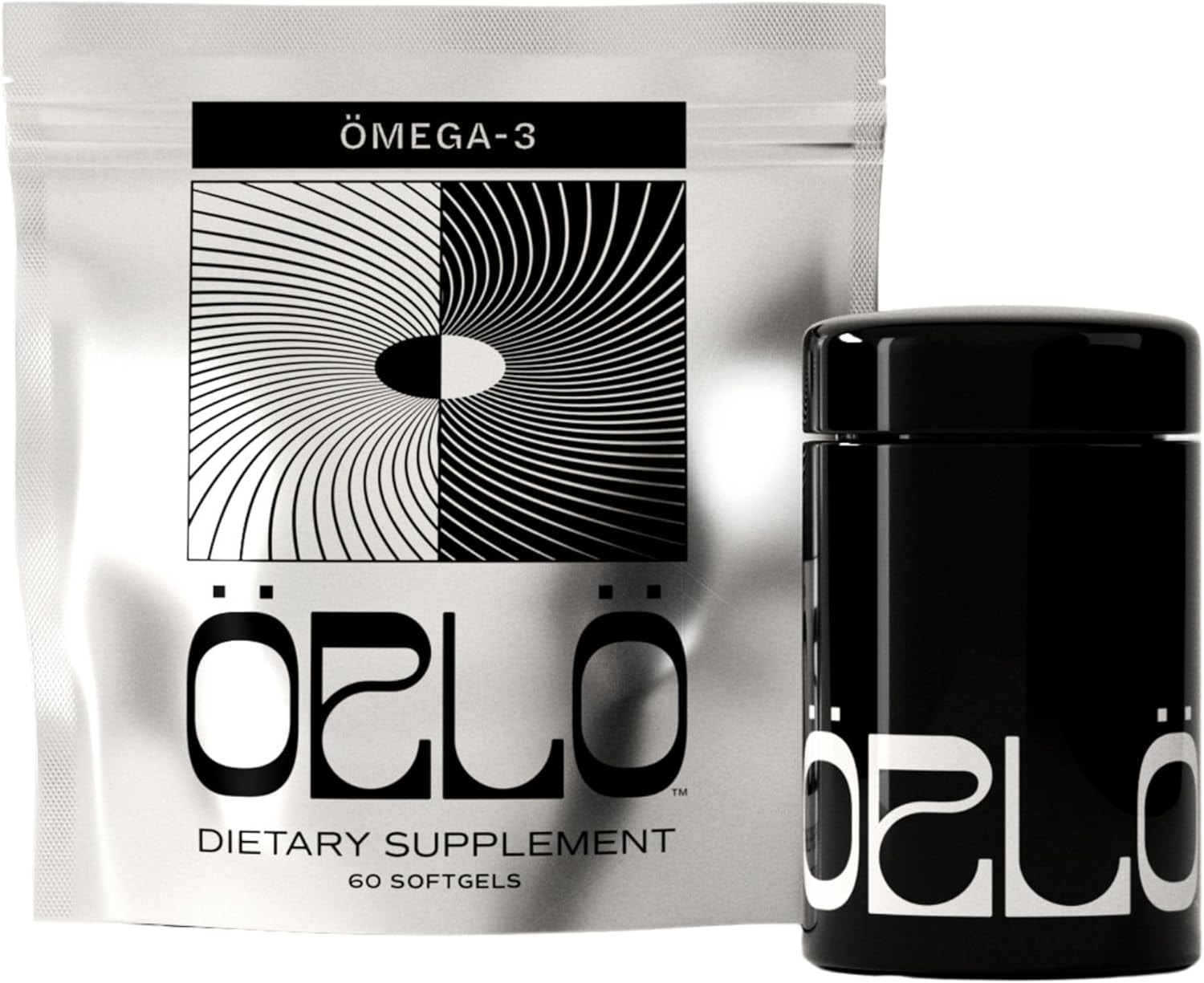
Orlo dietary supplement, sustainably packaged
Form: Replaced plastic packaging with fully plastic-free, compostable pouches made with a plant-based biofilm, refillable glass jar.
Evaluating the Effectiveness of Zero Waste Vitamins
Zero waste vitamins offer the same health benefits as traditional vitamins, with the added advantage of increased viability and eco-friendly packaging. Look for vitamins with natural ingredients and minimal processing to ensure maximum effectiveness. Sustainable sourcing of ingredients ensures that the vitamins are not only effective but also environmentally friendly.
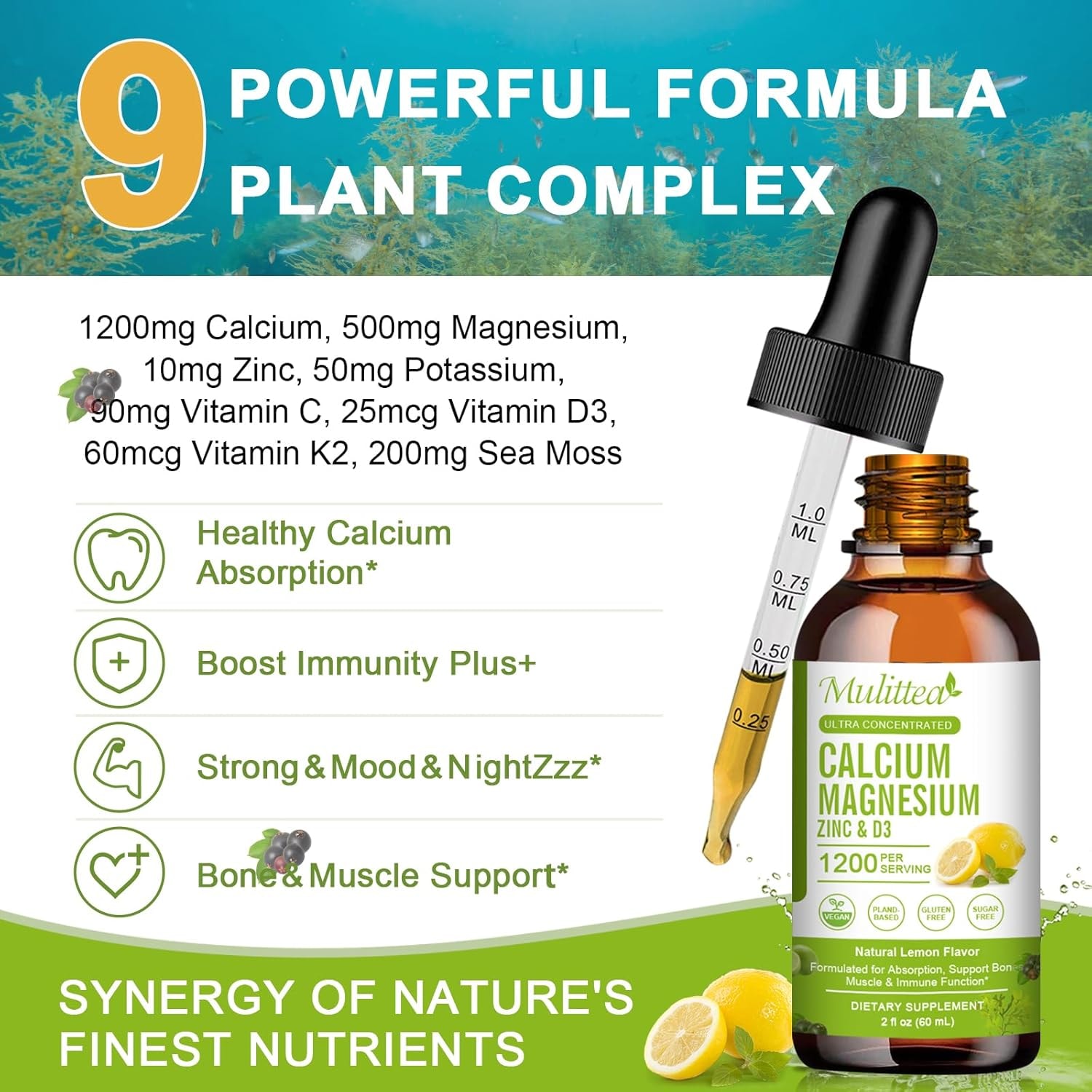
Mulittea. glass bottles
Consider consulting with a healthcare professional to determine the best zero waste vitamins for your specific needs
Addressing Common Concerns
Are zero waste vitamins more expensive than regular ones? While some zero waste options may have a higher upfront cost, they often provide better value in the long run through better effectiveness - less is more - refillable options and bulk purchase options.
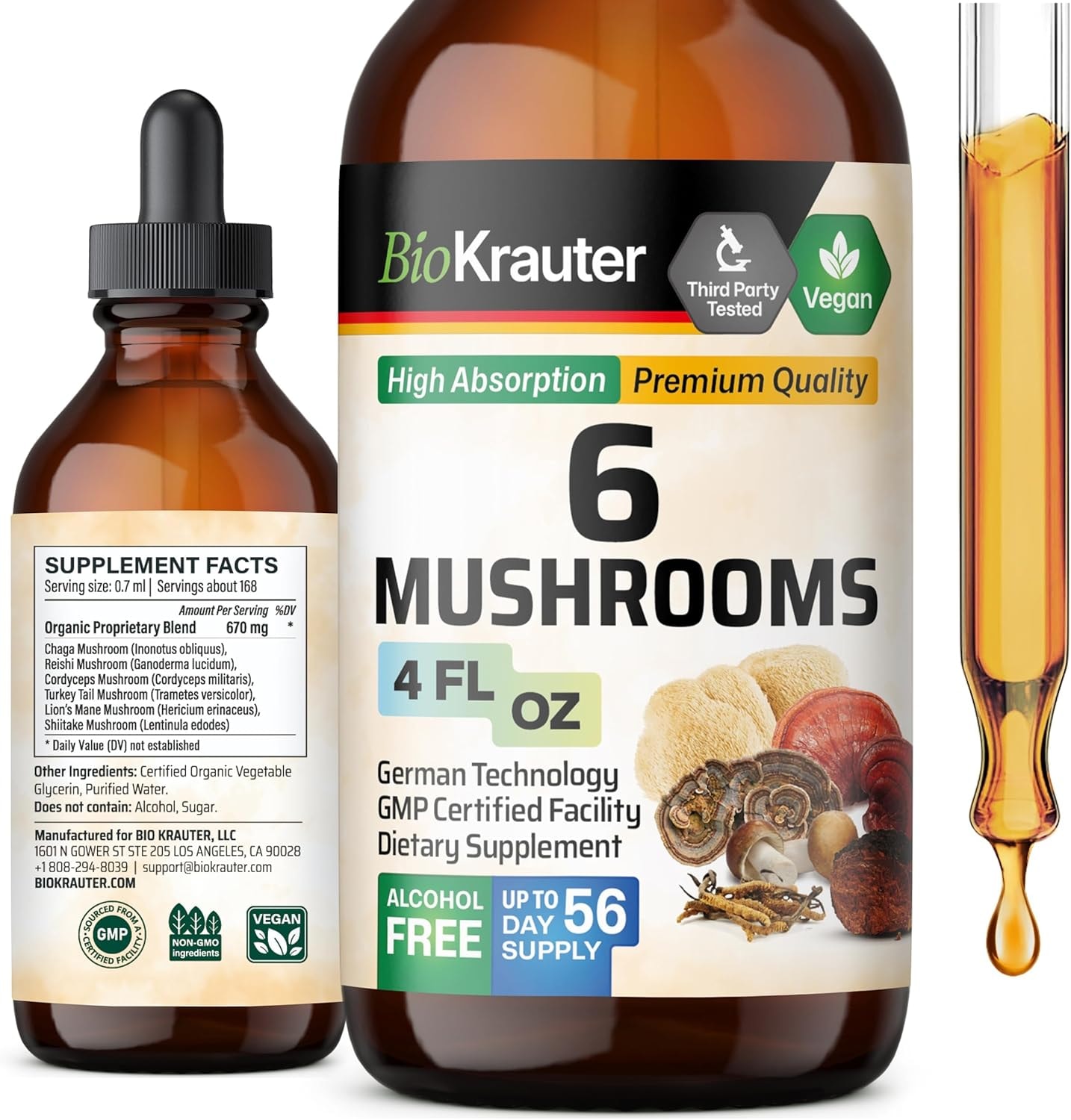
Bio Krauter glass
How can I ensure zero waste vitamins are sustainable? Research the brand’s sustainability practices, packaging materials, and ingredient sourcing to ensure they align with zero-waste principles.
Making the Switch to Zero Waste Vitamins
Start by researching and choosing a reputable zero waste vitamin brand. Consider your nutritional needs and select vitamins that align with your health goals. Look for brands that prioritize sustainable sourcing to ensure that their ingredients are ethically and environmentally obtained.

Pure Synergy Women’s** formula, others at the**Pure Synergy Store, glass jars, metal caps, this brand combines vitamins, minerals and herbs for excellent health benefits.
Compostable Packaging
Make a commitment to reducing plastic waste and promoting sustainability in your wellness routine. Explore refillable options and bulk purchasing to reduce packaging waste.
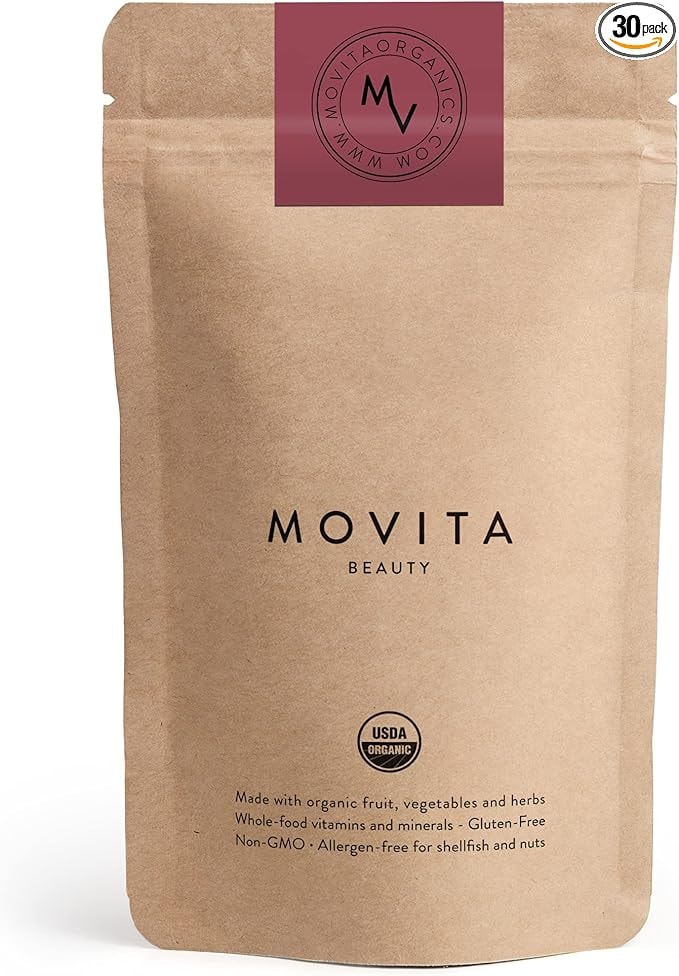
Movita Beauty Formula paper refill poach
So Don't Waste Vitamins
Replace your next supplement with a zero waste brand to ensure maximum absorption. Recent Studies warn against storing food or dietary supplement in plastic, for a variety of reasons including decreased potency and the leaching of endocrine disrupting hormones. Embracing zero waste vitamins is not only a powerful statement favoring environmental stewardship, but a vital change for our own personal well-being. Sustainable sourcing of ingredients ensures that the vitamins are not only effective but also environmentally friendly.

Movita Prenatal** pictured, many specific formulas at the Movita Store targeting a wide variety of health care needs, all in sustainable, including refill option packaging.**
This transition is crucial in an era where sustainability is no longer optional but essential for our planet’s and future generations’ health. Zero waste vitamins represent a confluence of health and environmental consciousness, offering a path to nourish our bodies without depleting the earth’s resources.
In Conclusion
In conclusion, embracing zero-waste vitamins and supplements is a crucial step towards a more sustainable future. By choosing eco-friendly packaging, sustainable practices, and plant-based supplements, we can significantly reduce plastic waste and minimize our carbon footprint. The benefits of zero-waste vitamins and supplements extend beyond the environment, as they also offer numerous health benefits, such as reducing exposure to chemicals and synthetic elements.
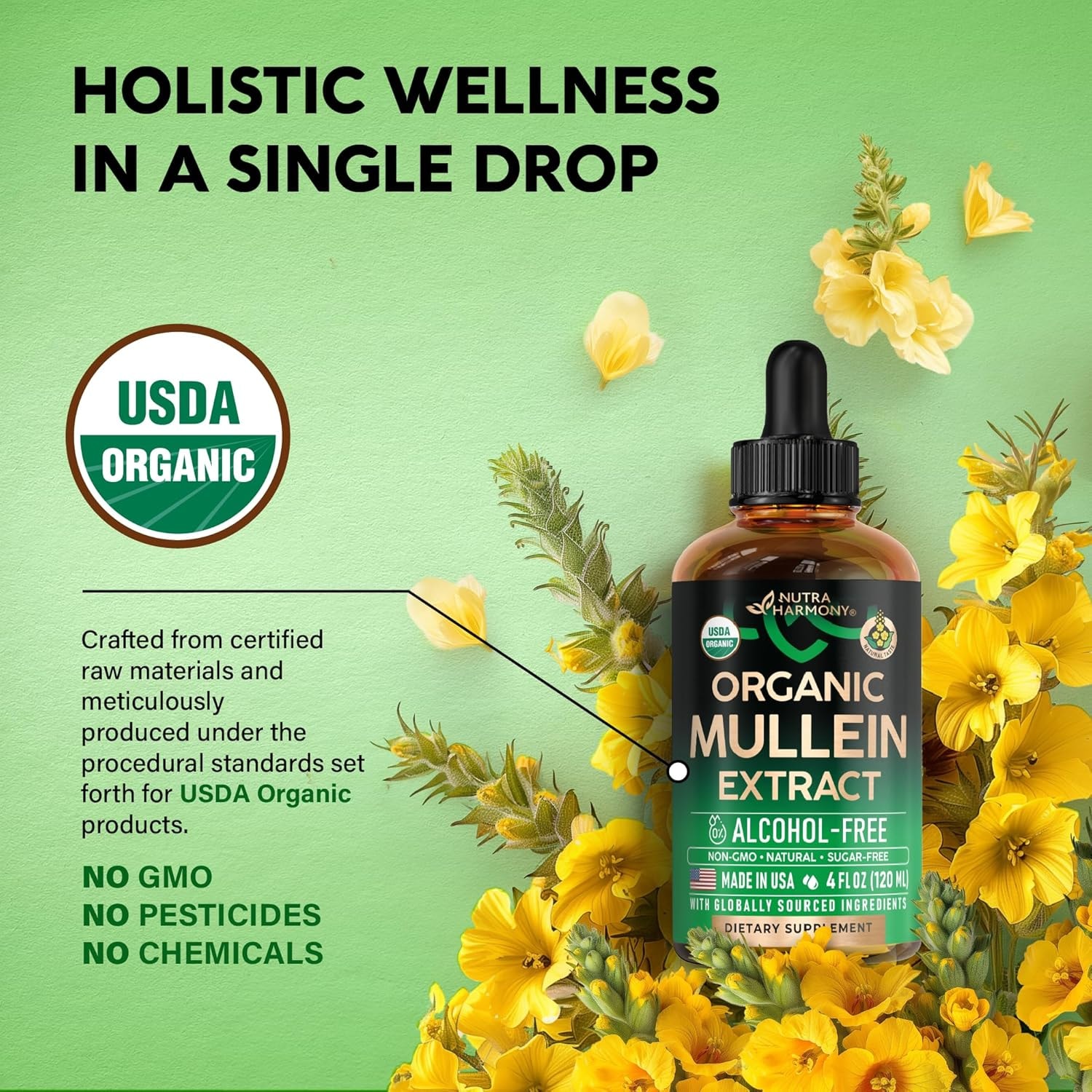
NUTRAHARMONY for lungs
As consumers, we have the power to drive change by supporting companies that prioritize sustainability and eco-friendly practices. By making informed choices, we can create a healthier and more sustainable future for ourselves and the planet. Remember, every small step counts, and switching to zero-waste vitamins and supplements is a great place to start.

FAQs
Why is plastic waste a concern with vitamin supplement containers?
Plastic waste is a significant environmental issue because most plastics are not biodegradable and can take hundreds of years to decompose. This contributes to landfill overflow and pollution in natural habitats, impacting wildlife and ecosystems. By using plastic containers for vitamins, we contribute to this growing problem.
How can plastic containers lead to toxin contamination?
Certain plastics can leach harmful chemicals, such as BPA (Bisphenol A) and phthalates, into the contents they hold, especially when exposed to heat or light. These chemicals can disrupt endocrine functions and have other adverse health effects. Using plastic containers for supplements may pose a risk of these toxins contaminating the vitamins you consume.
Does storing vitamins in plastic decrease their viability?
Yes, storing vitamins in plastic containers can affect their viability. Plastic is permeable to light and air, which can degrade the potency and effectiveness of the vitamins over time. Additionally, exposure to moisture and varying temperatures can further compromise the quality of supplements when stored in plastic.
What are some healthier alternatives to plastic containers for supplements?
Glass and stainless steel are excellent alternatives to plastic for storing supplements. They do not leach harmful chemicals, are impermeable to air and light, and maintain the integrity and potency of vitamins better than plastic. These materials are also more environmentally friendly, as they are recyclable and reusable.
Are there regulations in place regarding the use of plastic for supplement containers?
While there are regulations regarding the use of food-safe plastics, concerns remain about the long-term health impacts of certain chemicals found in plastics. Some companies are moving towards BPA-free plastics, but it's recommended to consider non-plastic alternatives to ensure safety and environmental sustainability.
For more information:
